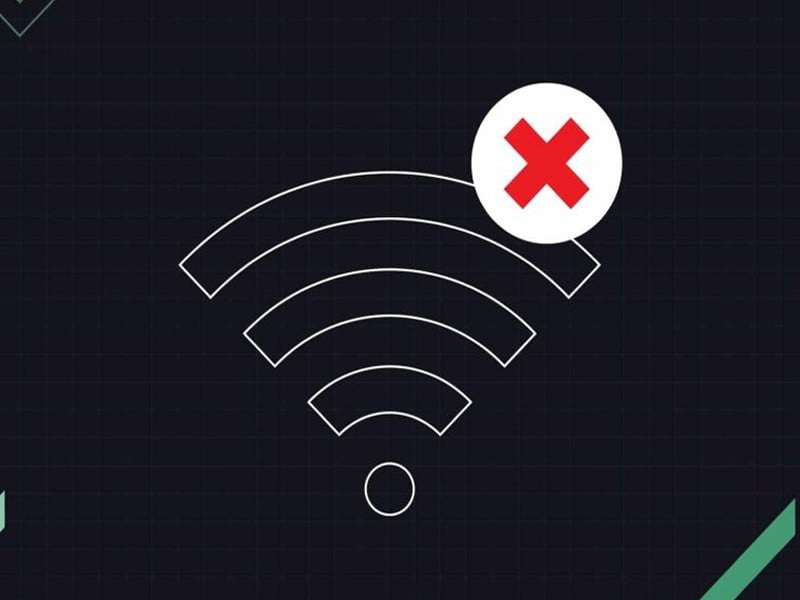Slow Internet Speeds Disrupt Work, Education, and Telecom Profits in Pakistan
Introduction: Widespread Internet Connectivity Issues Across Pakistan
Pakistan is currently experiencing significant internet connectivity issues, affecting millions of users across the country. Cities like Karachi, the country’s economic hub, and other major metropolitan areas have been particularly impacted by slow internet speeds, causing disruptions in daily activities. These issues have caused inconvenience to individuals, businesses, students, and the telecom sector, with a profound impact on work, education, and telecommunications profits.
As the digital world becomes more integral to daily life, internet disruptions have far-reaching consequences. The slow internet speeds in Pakistan are not just affecting personal communications but are also impacting the country’s economic activities, particularly in sectors that rely on online services for their operations.
The Scope of the Disruptions: Which Areas Are Affected?
Karachi Faces Major Internet Slowdown
Karachi, the largest city and economic capital of Pakistan, has been grappling with significant internet speed disruptions. Complaints are pouring in from various localities including Saddar, Liaquatabad, FB Area, and Gulistan-e-Jauhar, where users are facing delays in sending and receiving messages, multimedia content, and even basic communication on apps like WhatsApp. This is making it difficult for people to communicate effectively and perform daily tasks that are dependent on a reliable internet connection.
Nationwide Impact on Internet Services
The internet disruptions are not just confined to Karachi. Other cities like Lahore, Islamabad, Rawalpindi, and Faisalabad are also experiencing similar connectivity issues. Both mobile data services and Wi-Fi networks are being affected across these cities, creating widespread inconvenience for individuals, businesses, and educational institutions. Users are reporting slower loading times for websites, delayed video calls, and failures in sending multimedia messages.
The Impact on Different Sectors and Individuals
Remote Work and Freelancers Suffer Major Setback
In the wake of the COVID-19 pandemic, remote work has become a norm for millions of Pakistanis. However, slow internet speeds are making it nearly impossible for people to work from home effectively. Freelancers, digital marketers, and professionals in various sectors are finding it challenging to meet deadlines, conduct virtual meetings, and complete tasks that require a stable internet connection.
This disruption is not just a minor inconvenience but a major obstacle to the country’s growing digital economy. Businesses that rely on digital marketing, communication, and online platforms are experiencing financial losses, and freelancers are struggling to maintain their income due to connectivity issues.
Students Face Challenges in Online Learning
The education sector has also been significantly impacted by slow internet speeds. Since the COVID-19 pandemic, many schools, colleges, and universities in Pakistan have shifted to online learning. However, students are facing serious difficulties in attending online classes, submitting assignments, and participating in virtual group activities due to intermittent connectivity. This has created an uneven learning environment, particularly for students in rural areas who may already have limited access to quality education resources.
Telecom Sector Faces Financial Setback
The telecom industry, which generates billions of rupees in revenue daily, has been severely affected by the ongoing internet disruptions. 3G and 4G networks are responsible for a large portion of telecom revenue in Pakistan, contributing up to 70% of the sector’s daily earnings. The current slowdown is causing telecom companies to suffer significant financial losses, as users are unable to fully utilize the services they pay for.
The Economic Impact of Slow Internet Speeds
A Multi-Billion Rupee Loss for Pakistan’s Economy
According to IT experts, the ongoing internet disruptions are costing Pakistan’s economy billions of rupees every day. These disruptions are not only a setback for businesses but also result in a loss of productivity, which further compounds the challenges faced by the economy. As a country that is increasingly reliant on digital infrastructure, slow internet speeds are hindering Pakistan’s ability to compete in the global digital economy.
Sectors Relying on Digital Services Are Particularly Affected
Industries such as e-commerce, banking, and online services are particularly affected by slow internet speeds. E-commerce businesses, in particular, are seeing reduced customer engagement due to the difficulties customers face in browsing products, making online payments, and interacting with customer service representatives. Similarly, the banking sector, which relies heavily on online services for transactions and communications, is also struggling to maintain smooth operations.
The Need for Long-Term Solutions
Improving Digital Infrastructure: A Necessity for Economic Growth
Given the importance of digital infrastructure in modern economies, the need for long-term solutions to improve Pakistan’s internet services is paramount. The current disruptions highlight the fragility of the country’s digital infrastructure and the urgent need for investments in expanding and upgrading internet services across the nation. Pakistan must focus on enhancing its broadband infrastructure, expanding fiber-optic networks, and increasing mobile data speeds to ensure that the country is well-prepared for the demands of the digital age.
Government and Telecom Companies Must Collaborate
The resolution of these issues will require collaboration between the government and telecom companies. The government must implement policies that encourage investment in digital infrastructure while ensuring that telecom companies improve their services to meet the growing demand for high-speed internet. Moreover, there should be a focus on reducing the digital divide, ensuring that both urban and rural areas have equal access to reliable internet services.
Building Resilience in Digital Systems
To safeguard against future disruptions, Pakistan must also focus on building resilience in its digital systems. This includes implementing backup systems, strengthening network security, and ensuring redundancy in key infrastructure components. By doing so, Pakistan can minimize the impact of any future disruptions and ensure that internet services remain stable, even in times of crisis.
Frequently Asked Questions (FAQs)
- What are the main areas affected by slow internet speeds in Pakistan?
- Karachi, Lahore, Islamabad, Rawalpindi, and Faisalabad have been facing significant disruptions, with Karachi’s Saddar, Liaquatabad, FB Area, and Gulistan-e-Jauhar being particularly impacted.
- How has the slow internet impacted businesses in Pakistan?
- Slow internet speeds are causing major delays in communication, affecting productivity, digital marketing, and customer engagement for businesses. Freelancers and remote workers are also facing challenges in meeting deadlines.
- How much is Pakistan’s economy losing due to slow internet speeds?
- IT experts estimate that Pakistan’s economy is losing billions of rupees daily due to the internet disruptions, with the telecom sector alone facing a significant setback in revenues.
- What is the impact of slow internet on students in Pakistan?
- Students attending online classes are facing difficulties in participating in virtual classes, submitting assignments, and engaging in group activities, which is affecting their academic performance.
- What can be done to improve Pakistan’s internet infrastructure?
- To address these issues, Pakistan must invest in expanding and upgrading broadband and mobile internet networks, ensuring equal access to high-speed internet across urban and rural areas.
Conclusion: The Path Forward
The slow internet speeds affecting Pakistan are not just an inconvenience but a significant challenge for the country’s economy, education system, and telecommunications industry. The government, along with telecom companies, must act swiftly to address these issues by investing in digital infrastructure and ensuring a stable and reliable internet connection for all citizens. Failure to do so will hinder Pakistan’s ability to remain competitive in the global digital economy and prevent its citizens from fully participating in the digital age.
SEE ALSO:



